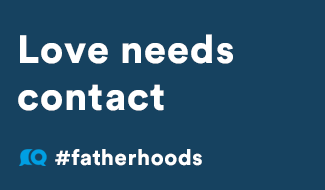Mediation is an opportunity to sort out the end of a relationship or marriage with dignity. It provides couples with the space and time to think about the future. People work out the practical arrangements for children as well as create an environment where children feel supported through the changes of their families. Mediation is also a cost-effective way of resolving the financial future when divorcing orseparating. The skill of the mediator is to create a trust relationship with each individual to give them confidence in the process. It is also to robustly challenge the proposals to ensure the transparency and practicality of the end result.
Unlike the court system, people can come back to mediation at any time. Sometimes it’s beneficial to put interim arrangements in place and come back a few months later to see how they’re working.
Financial mediation allows couples to work out where they will live and check they can afford the day-to-day costs, both at the time of separation and in the future. Mediation is more than making a deal – it’s about finding creative solutions to intractable financial conundrums, for example turning a 3-bedroomed house into two 3-bedroomed houses! Financial mediation is also about helping couples through debt management. So many couples find themselves in debt because of the increasing costs of living apart. Finding fast practical solutions can help.
Couples are often so concerned about the day-to-day cost of living apart that they fail to realise they need to include one of the most important family assets – pensions. Mediators help people to find a full and final settlement so both people have knowledge of all the financial assets and how they will be used in the future.
It is the responsibility of parents to include the views of the children in the arrangements for the children. So often parents are caught up in their own view of the separation that children are unintentionally side-stepped. This is not uncommon even when parents say their children are the most important thing to them. The mediator’s skill is to bring the children ‘into’ the room. Some mediators have special training to allow them to have sessions with the children to find out their view.
Separating and divorcing couples should contact a mediator as soon as possible to help sort things out. Even if they been separated for a while or if their case has already gone to court, mediation can still help to resolve things amicably.
Unlike the court system, people can come back to mediation at any time. Sometimes it’s beneficial to put interim arrangements in place and come back a few months later to see how they’re working. Quite often, improvements or changes can be made to make the arrangements fit in with work commitments, children or the transport system. If your situation changes and the arrangements aren’t working, you can go back to the mediator to change the original agreement.
Challenges
One of the biggest challenges for family mediators is getting both parties to agree that mediation is the right option for them. When a couple separate, they can want different things at different times. Finding the right time when they’re both ready can be a challenge. When people find out about mediation, they are often are willing to give it a try. During the Mediation Information and Assessment Meeting (MIAM) one of the mediator’s biggest challenges is to create an environment where both parties realise they are in control of the process. The important thing to remember is that they will be able to engage with theprocess and have a direct input into the outcome.
Family law solicitors can play an important role by encouraging their clients to try mediation. Most people going through mediation find it helpful to have legal advice to support them.
Clients can arrange this at any time and the mediator may also recommend they do if they are talking about things that relate to legal issues. The mediator can give clients information about local family solicitors and how to choose one. If clients get legal aid for mediation, they may also get free legal advice during mediation.
My job is rewarding when…
- I’ve helped people who find it difficult to be in the same room as someone they want to be separated.
- I help people who are nervous and worried about the first joint session to have the confidence to give it a try.
- In the mediation meetings, people re-learn how to talk to each other and put aside the history of hurt and conflict and work towards their independent future.
The best reward I get is to see people talk to each other about their children or how to work out their finances in a way that gives me confidence that they will be able to work things out for themselves in the future, because life has a habit of throwing up problems especially if you have children.
Tips about how to get the most out of a mediation meeting.
Be prepared
- Know and understand the aims of the meeting.
- Bring some ideas for solutions to the problems. Be creative and be realistic.
- Listen to the other party’s ideas in full.
- Look to the future, seize the opportunity to move forward.
Use the agenda
- Your mediator will develop an agenda with you about what needs to be discussed.
- If there is something else you want to raise, give as much notice as you can.
- Don’t expect answers unless the other party has time to think about your request.
Be guided by the mediator
- The mediator will be able to facilitate discussion, probe and challenge suggestions.
- Each person has the right to be heard – try not tointerrupt.
- Write notes on issues to raise when it’s your turn.
- Challenge constructively and give reasons why.
- Accept that your suggestions will be questioned, challengedand tested.
Stay focused
- Take time, even a minute, remember you’re trying to resolve issues and move on.
- Be mindful that what you suggest may enrage the other party
- Ask yourself, ‘Is what you want to say of benefit to the final outcome?’
- Tell the mediator if you would like someone (including the mediator) to behave differently in the meeting.
- Be prepared to say how the behaviour makes you feeland why you need thechange.
Develop understanding
- If you don’t understand or accept a proposal, try to listen and question what’s said so you can be informed of the other view.
- Realise that you may be misunderstood, be prepared to say more and how you feel.
- Understanding someone’s view does not mean you agree with it.
Stay positive
- Remember the reasons why you want to resolve your differences.
- Keep focused on the future.
- Use the time to establish a positive way of communicating.
- Accept you are here because of the past. Mediation can help you to build a new future.
Additional Reading/Resources
If you are facing court alone many people have found Lucy Reed’s book, ‘Family Court Without A Lawyer’ particularly useful.
You may also find our page on How To Tell Your Children You Are Divorcing – Recommended Books useful.
The Handover Book by Ashley Palmer is a unique and simple communication book for separated families. It will allow them both to always be aware of what is happening in their children’s busy lives as they go from one household to another. It’s a way of communicating the important things they both need to know about their children, while keeping your relationship as parents friendly and calm.
Charlotte Friedman has written Breaking Upwards – How To Manage The Emotional Impact Of Separation. Charlotte offers calm, therapeutic advice on everything from how to manage loneliness to letting go of grievance, and draws on illuminating case studies to answer questions such as: How long before I get over this divorce? How do I tell the children? How do I cope with the new partner in my ex’s life?
Posted on November 4, 2019
















